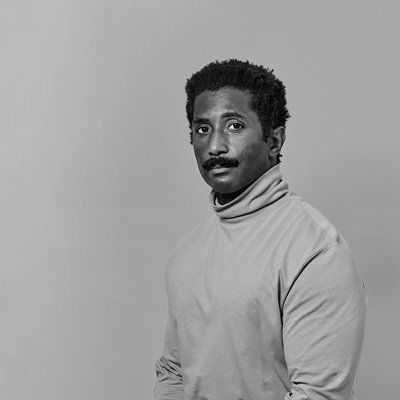Strangers in a Homeland
In Kabul, one of the world’s most dangerous cities, one man works to help Afghan migrants return to a place they never knew.
Showing 25 articles matching fk33.cc_Suppliers of Magnesium sulfate.
In Kabul, one of the world’s most dangerous cities, one man works to help Afghan migrants return to a place they never knew.
Understanding Joe Biden by way of his favorite historian.
Kara Voght Mother Jones Apr 2021 15min Permalink
At least 44 Fort Bragg soldiers died stateside in 2020—several of them were homicides. Families want answers. But the Army isn’t giving any.
Seth Harp Rolling Stone Apr 2021 35min Permalink
A century of research has demonstrated how poverty and discrimination drive disease. Can COVID push science to finally address the issue?
Amy Maxmen Nature Apr 2021 25min Permalink
Korean adoptees felt isolated and alone for decades. Then Facebook brought them together.
Ann Babe Rest of World May 2021 25min Permalink
For some Americans, history isn’t the story of what actually happened; it’s the story they want to believe.
Clint Smith The Atlantic May 2021 20min Permalink
The theft of a deeply personal painting by René Magritte from a Belgian museum was a national tragedy. Now, an investigation points to a tragedy greater still.
Joshua Hunt Vanity Fair May 2021 20min Permalink

“A quarantine facial-hair experiment led me to a deep consideration of my Blackness.”
Wesley Morris New York Times Magazine Oct 2020 20min Permalink
A spoiler-filled interview with the creator of The White Lotus.
Kathryn VanArendonk Vulture Aug 2021 20min Permalink
Faced with fragility and uncertainty, gig workers around the world are connecting across borders to challenge platforms’ power and policies.
Peter Guest Rest of World Sep 2021 25min Permalink
For the past two decades, the micronation of Westarctica has grown in prominence—and is now using its power for something other than Antarctic domination.
Katherine LaGrave Afar Oct 2021 15min Permalink
“Before I came to Hollywood, I was confidently queer. Years of mixed messages in the industry changed that.”
Colton Haynes New York Dec 2021 Permalink
Margo Jefferson, a Pulitzer Prize winner, has written for The New York Times, Newsweek, and Harper's. Her latest book is Negroland: A Memoir.
“One of the problems with—burdens of—‘race conversations’ in this country is certain ideological, political, sociological narratives keep getting imposed. This is where the conversation should go, these are the roles we need. In a way, this is the comfort level of my discomfort. ... Maybe we’re all somewhat addicted—I think we are—to certain racial conversations, with their limitations and their conventions.”
Thanks to MailChimp and Casper for sponsoring this week's episode.
Sep 2015 Permalink
Elizabeth Kolbert, author of Field Notes from a Catastrophe: Man, Nature, and Climate Change and The Sixth Extinction: An Unnatural History, is a staff writer at The New Yorker.
“I still nurse the idea in my heart of hearts that something you write, that there’s some key to this all. We’re all looking for the skeleton key that’s going to unlock it, and people will go, ‘Oh, that’s why we have to do something!’ I don’t want to say that I completely dispensed with that. I think that’s what motivates most journalists—this information is going to somehow make a difference. On the other hand, I have dispensed a lot of that. Now we’re so deep into all of this. The more you know about climate change and the numbers involved and the scale involved of what we need to do to really mitigate this problem, you know that we’re moving in absolutely the wrong direction. It’s not like we’re moving slowly, we’re moving in the wrong direction. It’s very hard to say anything I write is going to turn this battleship around.”
Thanks to MailChimp, Skagen, Squarespace, and Pitt Writers for sponsoring this week's episode.
Oct 2018 Permalink
Sam Anderson is a writer for New York Times Magazine and the author of Boom Town.
“I love being in that place where everything is just coming in, and everything is potentially important, and I’m underlining every great sentence that John McPhee has ever written and then I’m typing it up into this embarrassingly long set of reading notes, documents, organized by books. And then when you sit down with it as a writer who has a job, and his job is to fill a little window of a magazine or website, all of that ecstatic inhaling has to stop. You realize that you’ve collected approximately 900,000% of what you need or could ever use.”
Oct 2022 Permalink
Michael Schulman is a staff writer for The New Yorker. He recently profiled Jeremy Strong of Succession.
”There's an interesting moment that's part of this job where you’ve spent a lot of time with someone and it often feels very personal and very intimate. And then when you go to write the piece, you have to sort of take a breath and say to yourself, Okay, I'm not writing this for this person. I'm writing this for the reader.”
Jan 2022 Permalink

A collection of picks on the history, friends and foes of gay rights.
Returning to Forth Worth after two and a half defection years in the Soviet Union, Lee Harvey Oswald became friends with a Russian emigre family with a son of his age. After Kennedy was shot, they would be called on to translate the Secret Service interrogation of his young Russian wife.
Paul Gregory New York Times Magazine Nov 2013 20min Permalink
Joyce Hatto, unknown to even the most ardent classical music collectors until late in her life, released a string of incredible performances of great works, distributed by her husband’s mail-order CD business. But how was it possible for her to record difficult works at such a dizzying rate? And if wasn’t her playing, who was it?
Mark Singer New Yorker Sep 2007 45min Permalink
A youth set to the shifting sounds of CCM, Christian Contemporary Music:
This, by the way, is considered the ultimate sign of quality CCM, even amongst Christians: the ability to pass as secular. Every band’s goal was to have teenagers stop their grooving mid-song and exclaim, like a soda commercial actress who’s just realized she’s been drinking Diet, “Wait, this is Christian?”
Meghan O’Gieblyn Guernica Jul 2011 20min Permalink
It's a glorious thing, hearing Eddie Murphy say "fuck" again. Few people ever said it better – and down here in the basement of the stone-and-marble mansion he built on a Beverly Hills cliff, it's coming from his lips often enough to make Shrek blush. "Come on, motherfucker," Murphy shouts, over the throb of James Brown's "Hot Pants" on a formidable sound system.
Brian Hiatt, Eddie Murphy Rolling Stone Nov 2011 25min Permalink

From shipbreakers in India to a sniper in Afghanistan, organized crime in Naples to pirates in the Gulf of Aden — browse our complete archive of more than 20 articles by William Langewiesche.
She was a thirteen-year-old from the Chabad Lubavitch community who would dip into a barbershop bathroom to swap her orthodox clothes for those of a streetwalker. Her pimping and rape allegations against a group of black men in their twenties, repeatedly recanted and then reaffirmed, would send the D.A.’s office into disarray.
Alan Feuer, Colin Moynihan New York Times Jun 2012 10min Permalink
Sponsored
Story picks from Longform.org, plus all of the latest articles from dozens of the world’s best magazines. Elegant, reader-friendly design. Offline accessible. Perfect for commutes, flights, and Sunday afternoons.
Stop browsing, start reading.
The Cosmo editor and author of Sex and the Single Girl’s rocky real-life relationships.
Gerri Hirshey New York Apr 2016 15min Permalink